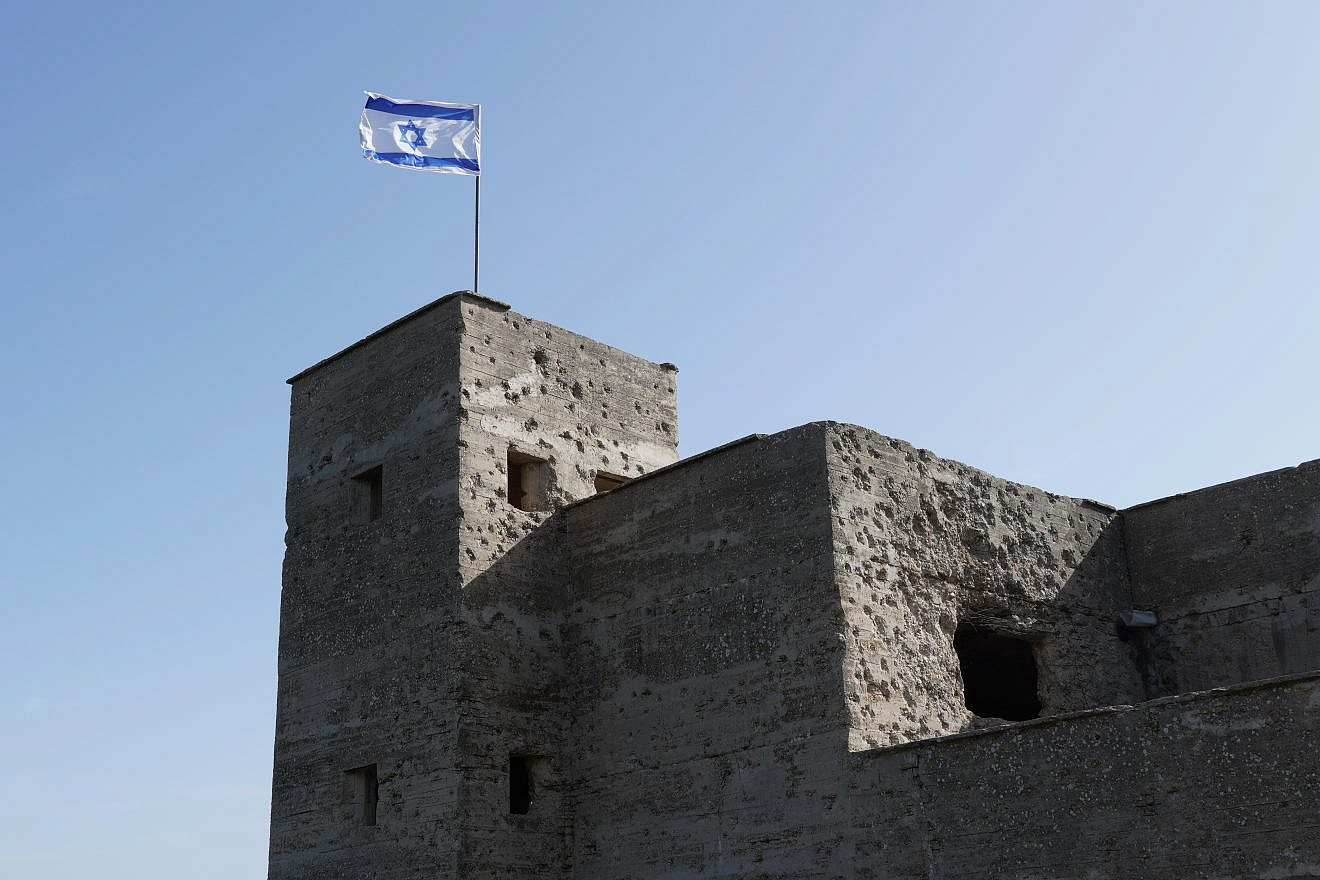The BBC on Feb. 12 patted itself on the back, claiming that its report from the prior week has caused the Israeli Defense Forces to say it will “take action against any soldiers found to have filmed and uploaded footage online of Palestinian detainees stripped, bound and blindfolded.”
The hypocrisy here is beyond comprehensible. British forces in the 1940s committed horrific acts of sexual torture, as well as physical and psychological abuse, against young Jewish boys and girls during the Holocaust when British forces occupied what would become the modern-day State of Israel. What’s more, the British exiled hundreds of young Jews to Africa in an attempt to prevent the Jewish state when it was needed most—that is, just as Jews across Europe and the Middle East were being slaughtered.
These current BBC investigations bring this hypocrisy to mind in large part because to this day, the broadcasting network has not seriously investigated the Holocaust-era crimes the British committed in Jerusalem, Tel Aviv and elsewhere. The horrific persecution of young Zionists who battled English soldiers and police in the 1930s and 1940s during the Mandate period in Israel is something the British people have never been encouraged by the BBC to truly examine. The abuse against young Jews included murder and sexual torture; it went largely unreported in Britain.
It is worth noting that in the 1940s, the BBC consistently portrayed the Zionist struggle to end British rule as a terrorist and criminal movement, and continues to be highly critical of Israeli policy. It also mostly ignored reports of Nazi death camps throughout World War II and has never conducted a proper modern, internal investigation into either of these connected failures.
Two stories that do much to shed light on the true nature of the British Mandate and the crimes committed against young Zionists are the cases of 16-year-old Alexander Rubowitz, who was believed to have been murdered by Maj. Roy Farran, and Yaacov Eliav, who was attacked sexually by Inspector Ralph Cairns while in British police custody.
Yaacov Eliav was a young underground fighter in the Irgun when he was assaulted. In Eliav’s memoir Wanted (translated from Hebrew and released in 1984 in the United States by Shengold Publishing), he graphically detailed the attacks by the Palestine Police CID he endured in early August 1939.
“I was stripped naked … ,” Eliav wrote. “(M)y underpants stuffed into my mouth … Cairns put a rubber glove on his right hand, and began to squeeze my testicles, one at a time … keeps squeezing, lifts me by my genitals, drops me and continues to squeeze.”
On a subsequent day, Cairns showed Eliav a photo of his young girlfriend, threatening to kidnap and rape her. “We will … strip her naked and do to her what we did to you.” Eliav described another attack when Cairns asked him “You want us to rape your sisters right here? … in front of your eyes? … he spits on me, kicks me, puts a burning cigarette against my skin … .”
Eliav was a little more than 20 years old when the attacks occurred. He was tortured for four days. Cairns was assassinated in Jerusalem by the Irgun on Aug. 26, 1939. His death came days after a news poster appeared accusing him by name of attacking “two Jewish girls by pushing fingers into their eyes and pinching their nipples.”
The 2009 book, Major Farran’s Hat: The Untold Story of the Struggle to Establish the Jewish State by Professor David Cesarani details the story of Alexander Rubowitz, a 16-year-old Stern member who was abducted on a crowded Jerusalem street in the middle of the day in May 1947. His body has never been recovered.
Rubowitz was hanging posters for the Sternists when he was kidnapped. Evidence left at the scene linked Farran to the abduction, and he was court-martialed on charges he murdered Rubowitz. Farran was acquitted by the British court. He was freed, despite having confessed to the murder to his commanding officer. Requests by the Rubowitz family to reopen the investigation were ignored.
A Jerusalem street in the East Talpiot neighborhood was named after Rubowitz as a memorial, and a historical marker was placed at the site of his abduction.
When Menachem Begin, the former Irgun commander, was elected prime minister of Israel in 1977, he launched a campaign to memorialize Irgun and Stern Group martyrs. Not just streets were named after them, but everything from settlements to postage stamps were utilized in an effort to honor them and tell their stories.
When the BBC examines its own decades-long history of failure to investigate why its news organization ignored British crimes against young Zionists, then it will have done something it can take some pride in, and at the same time, right a historic injustice.


























